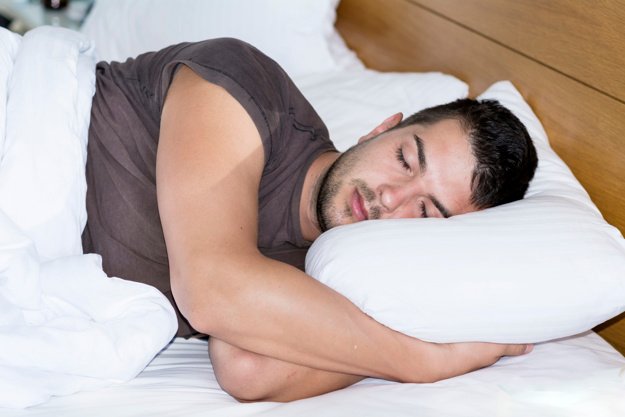Limit Your Exposure To Blue Light
Electronic devices like mobile phones, tablets, computers, televisions, and e-readers give off blue light. Light from this part of the spectrum can interfere with your ability to sleep. To avoid problems, stop using devices like these a few hours before you head to bed. Alternatively, you can also try using special blue-light-blocking glasses. The lenses on these glasses are colored orange, which helps counteract the effects of the light. Certain apps are available that are also designed to limit the amount of blue light given off by devices. The best option, however, is simply to shut down devices like these at least a couple of hours before bed. Any light-emitting devices like digital clocks should also be covered or turned toward the wall while you sleep. Reduce light from outside your bedroom by using blackout shades or curtains.
Minimize Pain In Your Lower Back With Pillows
Lower back pain is a common cause of sleep problems. Researchers have found that people who experience any type of back pain have more difficulty sleeping. This is true regardless of how minor or severe the pain is. Rolling onto your side when you sleep could help relieve the pain by easing the pressure on your lower spine. To properly align your hips, slide a pillow in the space between your knees. Choose a mattress that provides an adequate level of support such as a Lucid mattress. When you get up in the morning, move both of your legs to the side of the bed at the same time to keep from twisting at your waist.

Use Naps To Catch Up On Your Rest When You Need To
Napping is a good way to recharge your batteries if you haven’t been getting enough rest. If you sleep too long, however, it can make it more difficult to fall asleep later that night. To avoid problems, limit your naps to 20 minutes or less. Taking a quick nap like this can help you feel more alert so that you perform better. It also can give you a more positive outlook. To get the most out of the experience, nap in a room where the temperature and light level are both relatively low. Don’t nap too close to bedtime to avoid sleep disruptions. Short naps are best since they help you avoid a condition known as sleep inertia. This occurs when you take naps that are longer than 20 minutes and can leave you feeling groggy and confused for as long as half an hour after you wake up.
Don’t Stare At The Clock
When you are struggling to sleep and know that you need rest, watching the time go by can make you anxious, which can make getting to sleep even more challenging. To avoid any problems, turn the clock toward the wall. If you can’t fall asleep right away, try reading, enjoying a cup of decaffeinated herbal tea, or performing some other relaxing activity until you feel tired. Then, you can try again.
Focus On Proper Neck Alignment
Another reason people often struggle to sleep is because of neck pain. One of the best ways to eliminate this type of pain is by keeping the neck properly aligned. When sleeping, your neck should be at a neutral angle, with your nose lined up with the middle of your body. Choosing the right pillow is essential. The height of the pillow should allow your head to stay in alignment with your body so that your neck doesn’t have to bend too far in one direction or the other. Pillows that are made out of feathers or memory foam are good choices since they conform to your head shape and provide support for your neck. Instead of sleeping on your stomach, try sleeping on your back or side to keep your neck from hurting.







Comments
0 comments